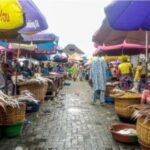
On September 18, Facebook sent waves through Nigeria’s digital space by announcing its plans to open an office in Lagos. “We’re opening a new Facebook office in Lagos,” the company shared.
This move reinforces Lagos as a hub for global tech giants, which has already hosted influential figures like Google’s Sundar Pichai, Twitter’s Jack Dorsey, and Facebook’s Mark Zuckerberg.
The Lagos office, set to launch in the first half of 2021, will accommodate teams focusing on sales, partnerships, policy, and communications. What stands out, however, is the inclusion of engineers—marking the first time Facebook will maintain an engineering team in Africa.
A Commitment to Africa’s Tech Talent
Ime Archibong, Facebook’s Head of New Product Experimentation, highlighted the continent’s growing tech ecosystem. “We’ll be building future products for Africa and the world with Africans leading the charge,” he stated.
This announcement is a significant boost for Nigeria’s tech ecosystem. It complements Facebook’s existing initiatives, such as NG Hub, a technology incubation center, and programs aimed at supporting small businesses.
With 27.5 million users in Nigeria, Facebook has its largest African user base in the country. This presence is part of the company’s broader strategy to grow its influence outside traditional markets. After facing challenges in Asia, including China’s stringent internet policies, Facebook shifted its focus to regions like Africa, where mobile internet penetration is still low.
Expanding Connectivity Across Africa

Facebook has invested in initiatives to increase internet accessibility. Programs like Free Basics provide users in several African countries free access to select websites, including Facebook. Additionally, the company has partnered with telecom firms to deploy fiber optic cables and undersea systems.
One notable project is the 2Africa subsea cable, a massive undertaking that aims to encircle the African continent and enhance connectivity. Slated for completion by 2024, this initiative could pave the way for Facebook to establish its first African data center.
A Growing Data and Cloud Industry
The demand for cloud and data services in Africa is on the rise, with companies like Amazon Web Services, Microsoft Azure, and Huawei setting up data centers. Nigeria, in particular, has attracted investment in this space, with RackCentre expanding its operations in West Africa. Telecom infrastructure companies such as IHS Towers and Helios Towers are also positioning themselves for future growth in mobile and internet services.
Africa’s strategic location offers further advantages. Lagos, for instance, is geographically aligned with Europe’s time zones and serves as a central point for global connectivity, making it an attractive destination for tech infrastructure.
The Politics of Data and Taxes
However, Nigeria’s suitability for hosting sensitive data remains uncertain. Facebook has strict criteria for choosing data center locations, often avoiding countries with poor records on privacy and freedom of expression. While Nigeria’s government has made relatively few data requests compared to countries like the US, its human rights track record could pose challenges.
In addition to data concerns, Nigeria’s government is exploring ways to tax digital companies operating within its borders. A Finance Bill signed in February grants the Finance Minister authority to tax non-resident digital service providers with “significant economic presence” in the country. This could impact companies like Facebook, Google, and Netflix.
Though this issue wasn’t addressed in a recent virtual meeting between Facebook’s Vice President of Policy and Communications, Nick Clegg, and Nigeria’s Vice President Yemi Osinbajo, it is likely to remain a pressing topic as the government seeks alternative revenue sources amid fluctuating oil prices.
Looking Ahead
Facebook’s Lagos office symbolizes a deeper commitment to Africa’s tech ecosystem. By investing in infrastructure, talent, and partnerships, the company is positioning itself as a key player in the continent’s digital transformation. At the same time, it must navigate challenges like regulatory compliance and local tax policies.


